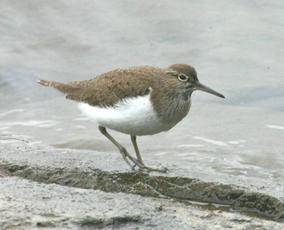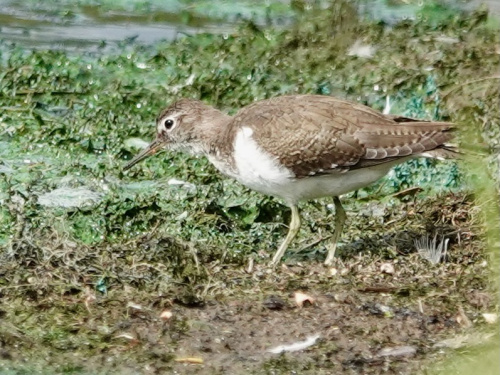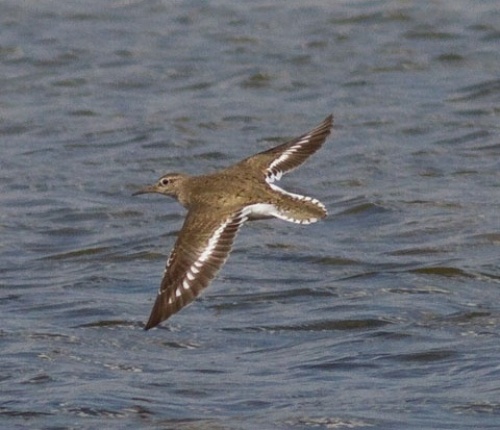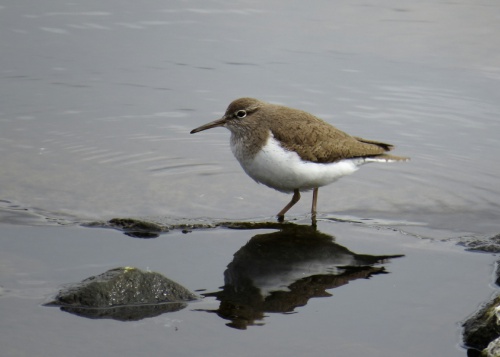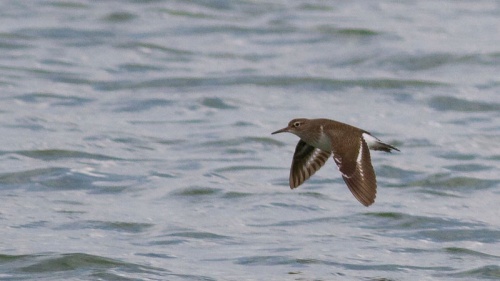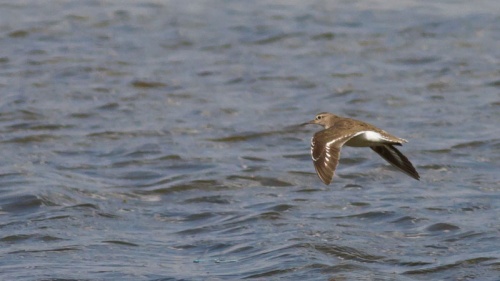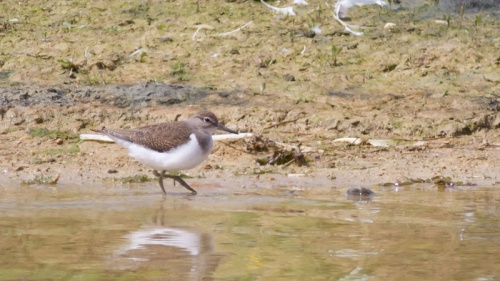Common Sandpiper - Actitis hypoleucos
A smallish wader with contrasting brown upper parts and white under parts. It habitually bobs up and down, known as 'teetering', and has a distinctive flight with stiff, bowed wings. Its presence is often betrayed by its three-note call which it gives as it flies off.
In summer it breeds along fast rivers and by lakes, lochs and reservoirs in Scotland, Wales, Northern Ireland and the north of England. In winter it may be seen along the south coast, and on spring and autumn passage it can be found elsewhere in the UK, near any freshwater areas and on some estuaries.
Summer visitors arrive in March and April and leave their breeding grounds in July and August, with the young following in September. Autumn passage birds are seen from July to September and wintering birds can be seen from October onwards.
Sandpipers are ground feeders that dine on crustaceans, insects, worms, and other creatures. They retrieve them by meticulously pecking and probing with their short bills.
Fairly widespread and common in Britain, particularly in the summer months
Fairly common as a bird of passage in Leicestershire and Rutland, but few wintering birds in this area.
Leicestershire & Rutland Map
Enter a town or village to see local records
MAP KEY:
Yellow squares = NBN records (all known data)
Coloured circles = NatureSpot records: 2025+ | 2020-2024 | pre-2020
UK Map
Species profile
- Common names
- Common Sandpiper
- Species group:
- Birds
- Kingdom:
- Animalia
- Order:
- Charadriiformes
- Family:
- Scolopacidae
- Records on NatureSpot:
- 228
- First record:
- 16/04/2006 (J.A. Sharpe)
- Last record:
- 19/09/2025 (Gaten, Ted)
Total records by month
% of records within its species group
10km squares with records
The latest images and records displayed below include those awaiting verification checks so we cannot guarantee that every identification is correct. Once accepted, the record displays a green tick.
In the Latest Records section, click on the header to sort A-Z, and again to sort Z-A. Use the header boxes to filter the list.


